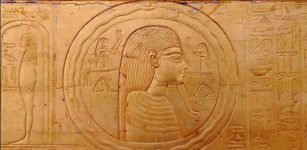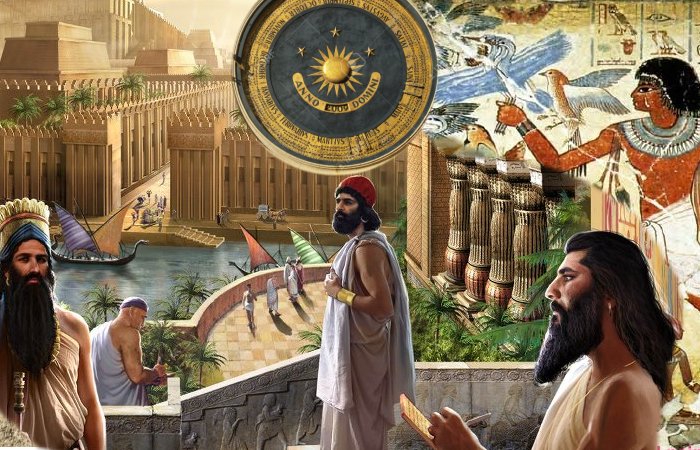In Ancient Times We Had Weeks Of Different Lengths
AncientPages.com - Of course, today we are used to a "week" as a 7-day period, but over the course of history the weeks have been as diverse as the people who used them.
As you might already know, days are related to the spin of the Earth, months to the phases of our Moon and years to the Earth's orbit around the Sun.
To determine and agree on the number of days in a week seems to have been a problem not only for our ancestors, but also for more modern civilizations. Most societies had some form of a week and the number of days varied from three up to as many as 16 days.
The ancient Egyptians and Greeks used to split their month into three ten-day weeks. The Inca used eight-day weeks. The Maya calendar uses a 13 and a 20-day week. The ancient Assyrians on the other hand had a six-day week.
Some West African tribes lived according to a four-day week.
The seven-day week which is now standard across the world seems to have originated with the Babylonians about 4,000 years ago. The days were named after the five planets known to the ancients at the time and they included the Sun and the Moon, which they regarded as planets as well. The seven day week custom was later adopted by the Romans.
Constantine the Great (c. 272 AD - 22 May 337 AD)
It was Emperor Constantine in 321 AD who established the seven day week in the Roman Calendar.
Our seven day week has been used for millennia by the Christian, Jewish, Islamic, Persian and Chinese calendars.
The day of rest is of course different depending on whether you are Jew, Christian or Muslim. For the Jews, the Sabbath (Saturday) is the day of rest and worship. On this day God rested after creating the world. Most Christians made Sunday their day of rest and worship, because Jesus rose from the dead on a Sunday. Muslims use Friday as their day of rest and worship. The Qur'an calls Friday a holy day, the "king of days."
Lithuanians used week of nine days before adopting Christianity.
See also:
Mesoamerican Long Count Calendar Begins – On August 11, 3114 B.C
Vikings And The Runic Calendar
Astonishing Lunar And Solar Calendars Created 30,000 B.C.
In more modern times, several countries tried to change the habit and enforce a "different" week.
The French Revolution resulted among many things in a strong wish for reforms. People wanted to eliminate the dominance and influence the Catholic Church had in pre-revolutionary France.
On 20 September, 1793, a mathematician named Gilbert Romme presented a proposal for a completely new calendar.
The goal was to get rid of the Gregorian calendar with its saints' days and religious holidays.
The year would no longer begin on January 1, but at the autumn equinox and anniversary of the proclamation of the Republic that occurred on September 21. Each month was thirty days long, divided into three weeks of ten days each.
French Republican Calendar of 1794, drawn by Philibert-Louis Debucourt
The result became known as the French Revolutionary Calendar and it was implemented for 13 years before it was abolished by Napoleon.
Another country that tried to replace the Gregorian calendar was the Soviet Union. In 1929, they introduced the Eternal Calendar. The new calendar contained 12 months of 30 days each, with six weeks of five days each in every month.
The Eternal calendar was intended to be favorable for Soviet workers. Instead of working 30 days and getting five days off out of every 35, they now worked only 28 days and got seven days off.
However, there was no fixed day of rest. On September 1, 1931 this was replaced by a six-day week with a fixed day of rest.
The Eternal Calendar was not popular among religious people and workers who wished to have Sunday as the rest day.
People simply ignored the six-day weeks and continued living by the old rules. Therefore, in 1940 the Soviet Union returned to the Gregorian calendar.
Today, we all use a seven-day week, but maybe one day in the future there will be a new attempt to create yet another different calendar…
Copyright © AncientPages.com All rights reserved. This material may not be published, broadcast, rewritten or redistributed in whole or part without the express written permission of AncientPages.com
More From Ancient Pages
-
 4 Things Ancient Greeks And Romans Got Right About Mental Health
Featured Stories | Aug 30, 2024
4 Things Ancient Greeks And Romans Got Right About Mental Health
Featured Stories | Aug 30, 2024 -
 On This Day In History: Army Of Tsar Alexander I Of Russia Enters Paris – On March 31, 1814
News | Mar 31, 2016
On This Day In History: Army Of Tsar Alexander I Of Russia Enters Paris – On March 31, 1814
News | Mar 31, 2016 -
 Unraveling The Mystery Of Ancient ‘False Doorways’
Ancient Mysteries | May 24, 2014
Unraveling The Mystery Of Ancient ‘False Doorways’
Ancient Mysteries | May 24, 2014 -
 Mother, Father, Child, Marriage And Divorce In Viking Society
Ancient History Facts | Apr 27, 2020
Mother, Father, Child, Marriage And Divorce In Viking Society
Ancient History Facts | Apr 27, 2020 -
 Ancient City Of Carchemish Will Soon Be Ready To Show Its Historical Treasures
Archaeology | Jun 20, 2019
Ancient City Of Carchemish Will Soon Be Ready To Show Its Historical Treasures
Archaeology | Jun 20, 2019 -
 Shepherd’s Monument Mystery: Yet Another Undeciphered Inscription
Featured Stories | Jun 26, 2023
Shepherd’s Monument Mystery: Yet Another Undeciphered Inscription
Featured Stories | Jun 26, 2023 -
 Historic Shipwreck Margaret A. Muir Found In Lake Michigan, Wisconsin
Archaeology | Jul 29, 2024
Historic Shipwreck Margaret A. Muir Found In Lake Michigan, Wisconsin
Archaeology | Jul 29, 2024 -
 Did The Viking Blood Eagle Ritual Ever Happen Or Was It A Misunderstood Story?
Archaeology | Dec 21, 2021
Did The Viking Blood Eagle Ritual Ever Happen Or Was It A Misunderstood Story?
Archaeology | Dec 21, 2021 -
 Ouroboros: Ancient Infinity Symbol Used By Different Ancient Civilizations
Ancient Symbols | Oct 3, 2017
Ouroboros: Ancient Infinity Symbol Used By Different Ancient Civilizations
Ancient Symbols | Oct 3, 2017 -
 13th Century Black Book Of Carmarthen: Erased Poetry And Ghostly Faces Revealed By UV Light
Artifacts | Apr 4, 2015
13th Century Black Book Of Carmarthen: Erased Poetry And Ghostly Faces Revealed By UV Light
Artifacts | Apr 4, 2015 -
 A King’s Discovery Of A Mysterious Underground World
Featured Stories | Mar 30, 2024
A King’s Discovery Of A Mysterious Underground World
Featured Stories | Mar 30, 2024 -
 DNA Shows First Scandinavians Followed Two Distinct Migration Routes
Archaeology | Jan 11, 2018
DNA Shows First Scandinavians Followed Two Distinct Migration Routes
Archaeology | Jan 11, 2018 -
 Why Was The Moretta Mask So Popular?
Ancient History Facts | Feb 14, 2020
Why Was The Moretta Mask So Popular?
Ancient History Facts | Feb 14, 2020 -
 Ancient Egyptian Cosmetics – Why Was It So Important To Both Men And Women?
Ancient History Facts | May 19, 2020
Ancient Egyptian Cosmetics – Why Was It So Important To Both Men And Women?
Ancient History Facts | May 19, 2020 -
 2000-Year-Old Tomb Discovered In Northwestern China
Archaeology | Dec 7, 2015
2000-Year-Old Tomb Discovered In Northwestern China
Archaeology | Dec 7, 2015 -
 Race Against Time: Crucial Expedition To Delve Into Bouldnor Cliff, Europe’s Mesolithic Underwater Stone Age Site
Underwater Discoveries | Apr 28, 2024
Race Against Time: Crucial Expedition To Delve Into Bouldnor Cliff, Europe’s Mesolithic Underwater Stone Age Site
Underwater Discoveries | Apr 28, 2024 -
 First Bathrooms Appeared Around 8,000 B.C In Scotland
Ancient History Facts | Dec 11, 2016
First Bathrooms Appeared Around 8,000 B.C In Scotland
Ancient History Facts | Dec 11, 2016 -
 Elusive Non-Binary Gender In Prehistoric Europe – A Forgotten Minority
Archaeology | May 26, 2023
Elusive Non-Binary Gender In Prehistoric Europe – A Forgotten Minority
Archaeology | May 26, 2023 -
 Neanderthals Used Amlash Caves In Iran’s Gilan Province As Shelters
Archaeology | Aug 19, 2020
Neanderthals Used Amlash Caves In Iran’s Gilan Province As Shelters
Archaeology | Aug 19, 2020 -
 Sacred Helgafell Mountain And The Story Of Torolv Mostrarskjegg
Myths & Legends | Mar 13, 2024
Sacred Helgafell Mountain And The Story Of Torolv Mostrarskjegg
Myths & Legends | Mar 13, 2024



